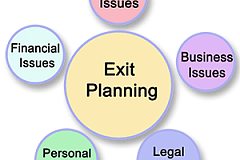 No matter where you are at in the business plan process, you can launch your dream in 2019. You've gone over your business plan again and again. Now, it's time to put it into action.
No matter where you are at in the business plan process, you can launch your dream in 2019. You've gone over your business plan again and again. Now, it's time to put it into action.
The New Year offers all entrepreneurs an opportunity to realize their visions. A fresh year can also give business owners a chance to put their business plans to action.
If you are new to the world of business, however, crafting a business plan can be nothing short of challenging.
What is a Business Plan?
A business plan is the bread and butter of any company launch. No two business plans are alike. In general, however, your business plan should include all of your strategies for getting things off the ground.
It is, in essence, your roadmap to a successful launch. You don’t want to blow up on the launch pad.
Keep in mind that it’s likely that you already have a sketch of a business plan in place, even if that plan consists of a handful of product or service ideas.
A business plan does not need to be a multi-page formal document. It can take the form of a Lean Strategy plan, one that consists more of bullet points than paragraphs.
[quotesright]The best business plans are, after all, extremely comprehensive but don’t confuse heft and size with effectiveness. [/quotesright] It’s not about wishing, this is for real, so, conservative estimates will serve you well.
[quotes]The best business plan is one you can follow and track from just on one page.[/quotes] You can have backup materials beyond that, but they provide details about how you plan to reach what you have on that first page.
The point is, businesses have just a few critical things they must accomplish in the next year – the rest are aspirational. Focus on the “A List” and pick the top three that must be done. That is where you need to focus most of your energy. Once you have achieved each of those, add in the next goal from your list.
[quotesright]A good plan is realistic and does it’s best to identify what you must do with absolute clarity and focus when operating in a competitive and dynamic environment. [/quotesright]
The should detail financial prospects, marketing and sales strategies, and organizational information. The point of putting in the details is to try to identify and plan for all contingencies and have alternatives thought out if “Plan A” doesn’t work.
[quotes] “In preparing for battle, I have always found that plans are useless but planning is indispensable.” – Dwight D. Eisenhower[/quotes]
That’s good advice; your plan can be changed and modified as you learn more about the reality of being in the business you are in. Doing the right thing now trumps slavishly doing the wrong thing anytime. Just keep in mind when you launch, be prepared to realize your initial plan will run headlong into reality and need to change.
it's wise to view your business plan as a living document that is subject to periodic updates, not just a once-a-year event. A plan crafted in Google Docs, for example, can be quickly shared with your partners and employees. It can also be updated and saved automatically as your business grows and adapts.
The Components of an Effective Business Plan
First, be crystal clear on your target market, your prospects, how you will reach them and how you plan to differentiate yourself from others in your industry. Branding is for cows, it won’t help you differentiate you nearly as well as having a dramatic product or service difference your potential customers will value.
[quotesright]After all, your brand is what your customers say it is. [/quotesright]
Your business plan will depend on a lot of things. Your prospective industry can determine what goes into it, for one thing. The same goes for your intentions for marketing, sales, finances, and company hires, if applicable.
In general, however, your business plan should cut to the chase when it comes to numbers. [quotes]Avoid the all too human bias to believe everything will be fine.[/quotes] Consider that at best, your estimates will be only half right half the time… Build in a substantial margin for errors in forecasting. You will make them.
Your plan should include financial forecasts, funding information, existing working capital, anticipated cash flow, and predicted expenses. You need to know when you expect to see revenues come in and expenses flow out. [quotesright]Running out of cash is the single biggest reasons companies fail. Know and adjust your plans to reality. [/quotesright]
Your business plan must outline a clear marketing and sales strategy. This is vital, especially if your business is based solely online. You have to have very clear plans for how to effectively advertise your services to customers, the specific strategies and tactics including the resources needed and the time it will take.
What are the market segments you plan to market to? Not all your customers are likely to be the same. What is the conversation going on in their head about the problem they have that your product or service solves?
It is essential to have this figured out and marketing and sales strategies that tap into this conversation. For your marketing plan, it’s helpful to create buyer personas for each product/market you are targeting so you have a “straw person” you can market and sell to just like a live individual.
Finally, include market analyses, paying particular attention to your competitors, their products, and their advantages. You’ll need to differentiate yourself from them or why would anyone buy from you? How will they react to your market entry? You must anticipate that and have plans A, B and C to deal with their reactions. Finally, you’ll need to have product plans and logistics strategies for delivery of your product or service.
[quotesright]Think about it this way: if you had nothing but your plan to work from, would your business be ready for takeoff? [/quotesright]
If the answer is “yes,” keep reading. If not, it's time to put a bit more effort into your business plan.
It can be helpful to read examples of business plans or proposals. We recommend you read the book Burn the Business Plan, by Carl J. Schramm. His exposition of what great entrepreneurs really do will be invaluable.
What to Consider and Cover
Timing
When it comes to launching a business plan, timing is everything. Here are a few things to keep in mind to prepare for launch that involve timing which have not been discussed directly.
Know when your target markets set their budgets, buy stock, are too busy to pay attention to anything other than selling and fulfilling orders, etc. These factors can either put your market entry at the forefront of the buying season or make it so late that you run out of cash before you every get started.
There are businesses who have totally planned and committed their buying for next year a year in advance. Don’t take for granted just because you are there, they buyers will be in the market or able to buy. Maybe they’d love to buy from you but have already committed their budget.
Don’t forget to consider the timing of payments you must make and when your customer will pay for what you delivered. It may be the industry doesn’t pay for 90 days, sometimes it is even “pay when paid” if they are intermediaries. That is, they don’t pay you until 30 days after they collect the money from their customer.
[quotes]Cash in hand is what you can spend, no one takes Accounts Receivables for payment.[/quotes] Plan with the delay in collections factored in.
You’ll know the answers to timing from your market analysis and digging. Know when you’ll collect!
Market Analysis
Out of all the companies or people in your market, which ones do you want to get and which do you want to avoid? Some customers will cost you money.
[quotes]First, determine your target customers.[/quotes] Your target customer is the person most likely to need or want your services or product and with whom your product or service will be most likely seen as a better choice than the competition’s. They are also the ones you can reach the easiest, the fastest on whom you can make the most money.
Example: Auto buyers. It’s a huge market. You know there are many market segments, used car buyers, new car buyers, lease car buyers… Mercedes and Nissan Versa buyers. Your market is probably similar. Your products/services, features, pricing, financing, advertising, and even sales process will need to be tailored for each segment.
[quotesright]That’s why you need a very clear idea of the segments in your market so do your market analysis thoroughly. [/quotesright]
It's easy for your target customer to change a bit as you develop a product. That's why it's necessary to continually modify your target market and the personas of the client you are trying to reach as you develop your plan and products and learn more.
Research customer behaviors by studying news articles, labor statistics, and even social media. This can give you greater insights into your market – and whether or not now is the best time to launch your business idea.
Study your industry more, anticipating trends in growth. This will also include a competitor analysis. Who is going to be your competition? How well are they doing? What are their products and advantages? How are your products or services demonstrably superior to theirs?
[quotes]Finally, set appointments with potential clients and ask for their reaction and advice.[/quotes] Most people, if approached honestly and asked to help you understand based on their expertise and experience, will be happy to squeeze you in. You’ll learn more from talking to buyers than any amount of research is likely to provide. You might even have a prospective customer for the future who likes what you are bringing to the table.
You may be surprised by some changes in your market, product ideas, and marketing strategies based on the work you do. If so, adjust your plan accordingly.
Implementation Calendar
Your market analysis and financial timeline can both help you craft an implementation calendar. This is an official timeline for bringing parts of your business plan to launch.
[quotesright]That's right: most business plans launch in pieces rather than all at once. [/quotesright]
This is especially true for businesses that sell services rather than products, as well as for companies that are funded by outside sources.
Build an implementation timeline that directly integrates with all aspects of your business plan. This timeline should be both flexible and realistic. To craft this calendar, give yourself a timeframe for every clear task outlined in your business plan.
Take marketing, for example. As a business owner, you'll likely need an attractive, user-friendly, and informative website for prospective customers to visit. Setting up a website should be within the earliest timeframes of your implementation calendar.
Hiring personnel, however, may appear later in your calendar once revenue has accrued.
We recommend building a virtual implementation calendar as timeframes are likely to shift. However, make sure you set reasonable and actionable deadlines to prevent your calendar “getting put off” until next year.
Set Goals, Strategies and Tactics
Your business plan is a compilation of a few high-level goals with the strategies you intend to use to achieve those goals.
For example, your goal may be to reach $10,000 in sales. You may also wish to set a goal to acquire so many initial leads by a certain date as per your marketing implementation efforts.
When setting goals, aim to create SMART goals, ones that are specific, measurable, actionable, realistic, and time specific. [quotesright]The question you are answering is “How will I know when this tactic, strategy, and goal has been achieved?” [/quotesright]
Gather Your Team
Your team may only consist of two or three people at this point. It may consist only of you.
Either way, make sure that your team is fully prepared for the launch of your business plan. Your colleagues and business partners should be active participants in this process.
Y ou should all have a good understanding of your goals, how you plan to reach them, and how each team member has a role in helping the company achieve its goals.
ou should all have a good understanding of your goals, how you plan to reach them, and how each team member has a role in helping the company achieve its goals.
If you are running the ship solo, get a sense of what your future team will look like. Anticipate when you’ll be bringing these people on board and in what order.
Anticipate Setbacks
Very few businesses enjoy a seamless transition from plan to launch. Anticipate setbacks and be prepared to modify both your plan and your implementation calendar.
This is why you need to build in a substantial financial cushion; nothing works like you think it will. [quotes]It will always take longer, cost more and return less than your very best estimate.[/quotes] And, if it does far better than that, who is going to complain?
Whenever you encounter a setback, don't panic. Approach challenges mindfully. Refine your marketing strategy or make product or service changes. You need to specifically address the underlying cause of your problem, not merely react.
Eventually, your business will take shape.
Put Your Business Plan into Action
You've done the hard work of putting together the pieces of your business plan. It’s about as accurate as the one Lewis and Clark had starting in 1804 after the Louisiana Purchase.
Just as they did when they left the known trails to map a route to the west and explore what the new land held, you’ll at least have a pretty good compass. That way, you can make needed deviations along the way and still know where you are heading – but this is only true if you’ve started your journey with a well thought out and straightforward plan.
[quotes]Use your network.[/quotes] Many entrepreneurs overlook their existing network when crafting a business plan. The launch of your plan will depend on a lot of human effort, including yours.
You may already know more potential customers and colleagues than you realize. You may already have a “corporate partnerships” strategy and a “potential contacts” or “prospective customers” bulleted list.
Identify and establish connections with your existing network. These people will be the first to hear the news about your business launch. They may even be your first customers.
At the very least, they can help spread the word and even support you through the first steps of your business's existence.
Final Thoughts: Your Business Plan
Crafting a business plan is an essential part of launching an entrepreneurial vision. Yet how do you get it off the ground?
First, make sure your plan has all of the elements necessary for take-off. Perform additional market analyses to ensure proper launch timing, product marketing, sales plans, and financial realities.
Craft an implementation timeline based on your business plan goals, strategies, and tactics.
Make sure you tap into your existing networks as you launch. Don't underestimate the power of connection!
[quotes]Then act, do something.[/quotes] Even if you fail, you’ll have learned more about business and the reality of running one than about 90 percent of the rest of the population.
You’ll also know the mistakes not to make the next time you decide to start a company. Most successful entrepreneurs fail several times before they succeed. [quotesright]Failure is a stepping stone to success if you learn from your mistakes…[/quotesright]














